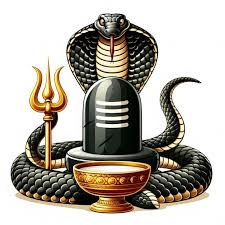
Nagara Panchami Puja is a traditional Hindu festival dedicated to the worship of Nagas (serpent deities), especially Nagadevata, who is believed to protect against snake bites, bring fertility, and ensure prosperity. It is observed on the fifth day (Panchami) of the bright half of the lunar month of Shravana (July–August), and is celebrated widely in Karnataka, Andhra Pradesh, Tamil Nadu, and Maharashtra.
On this day, devotees worship snake gods such as Ananta, Vasuki, Shesha, Padma, and Karkotaka. The snake is considered a symbol of energy, rebirth, and immortality and is closely associated with Lord Shiva and Lord Vishnu.
The puja usually begins in the morning after a ritual bath. People clean the front yard and draw naga rangoli or snake designs using rice flour or turmeric paste. Snake idols made of clay, silver, or stone—or naturally existing ant hills (valmikas)—are decorated with turmeric, vermilion (kumkum), milk, flowers, and sandalwood paste.
Devotees offer milk, honey, tender coconut, ghee, and sweets like laddus and payasam as Naivedyam to the Nagas. The puja is performed with mantras and prayers seeking protection from snake-related fears, family welfare, and removal of doshas such as Naga Dosha or Sarpa Dosha, believed to cause delays in marriage or childbirth.
In temples, special abhishekas and rituals are conducted, especially in shrines dedicated to Nagadevata. Women observe fasts and tie sacred threads around their wrists or necks after the puja.
Nagara Panchami Puja emphasizes respect for nature and all living beings. It is a symbolic gesture of harmony between humans and the natural world, ensuring protection, prosperity, and peace for the family.

